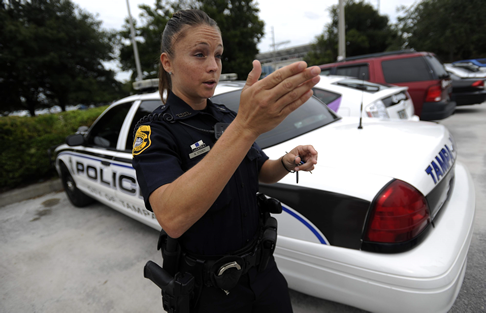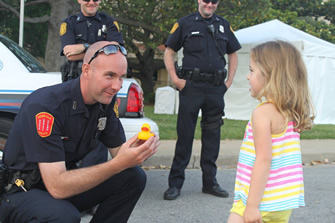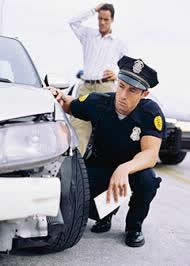
POLICE OFFICER

In this unit you will learn about a career as a Police officer or a Corrections officer. You will use Ohio Means Jobs to explore the career in full.
Police Officers:
Policemen and women are the first to arrive at emergencies. Police officers pursue and arrest perpetrators, contain situations and ensure civilian safety. Officers conduct investigations at crime scenes, which may involve talking with witnesses, obtaining evidence and determining potential suspects. To become a police officer, individuals need to meet physical and educational requirements, as well as complete a state-approved police academy training program.
What traits do I need to be a Police Officer?
A police officer needs to have integrity, honesty, strong communication skills, commitment, physical strength. They need to have a commitment to helping others. They need to be able to handle difficult people, difficult situations and sometimes difficult people IN difficult situations. They need to be motivated by doing what is right. They need to be able to make decisions based on what is legal and not based on opinion. They need to be devoted to continual training both physical and in the classroom. They need to master use of a weapon. They also need to remain calm under pressure.

What kind of education will I need?
Police officers are required to have a high school education or the equivalent. There are many college graduates in Law enforcement as well. Candidates for the police force need to attend the Police Academy and are required to pass a background check. What it takes to get into the Police Academy differs from agency to agency. Some want applicants to have completed a few college level courses while others are fine with a high school diploma.

Courses that would be helpful for a career in Police work include:
Criminal justice or Police Science. Students may study criminology, evidence gathering, law enforcement strategies and Constitutional rights.
There are degrees offered in Police Science for students who want to specialize in certain areas of police work such as Police Administration or Crime Scene Investigations.
Some of these programs might be added to the Police Academy training. Some police academy training programs are divided into two sections. “Classroom” courses include patrolling procedures, police skills, first aid and police technology. “Physical Training” courses include stamina and strength building, firearms techniques, escorting criminals, defensive driving and self-defense.
What else will I need to do to be a Police Officer?
1. Background check: Getting into the Police Academy requires an extensive background check. These differ by state. They may include interviews with former employers, family members or even past professors, and friends. They may do a credit check to be sure that you are responsible and pay your bills on time.
2. Physical Exam: The physical exam tests the applicant’s hearing, sight and physical strength. They will check stamina, dexterity, and overall agility. Sometimes they will even test to see if the person can handle stressful situations. This is called a psychiatric exam.
Jobs that fit under the “Police” umbrella:
There are many possibilities is police work. You may want to work locally in your city or town. Universities have police forces. It you want, you could work for the state highway patrol enforcing laws on the freeways. The Sheriff’s department or the Federal police departments are also options. There are divisions for property crimes, narcotics, and even organized crime. Within each division are also specialty positions and departments. There are many opportunities in the Public Safety careers. Some of these careers may require specialized training.

How much money will I make?
According to the 2014 U.S. Bureau of Labor and Statistics, the median annual wages of police and sheriff's patrol officers were $56,810.

Below are additional educational resources and activities for this unit.